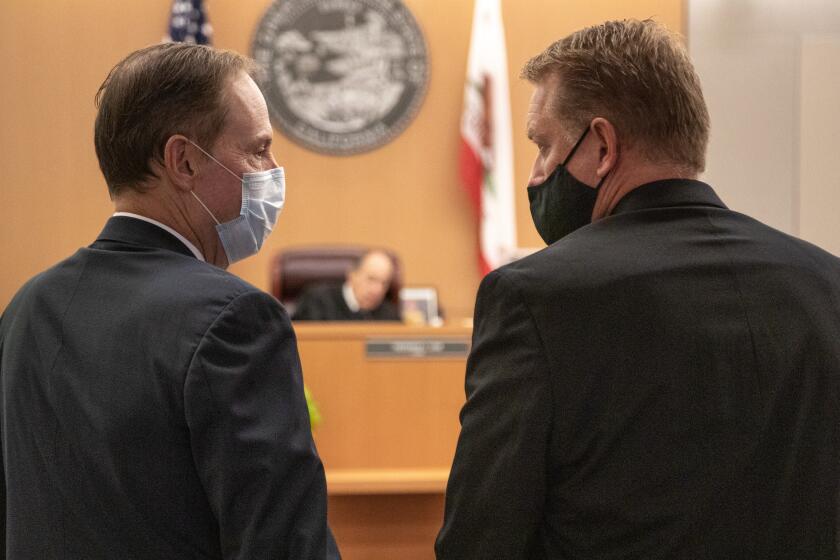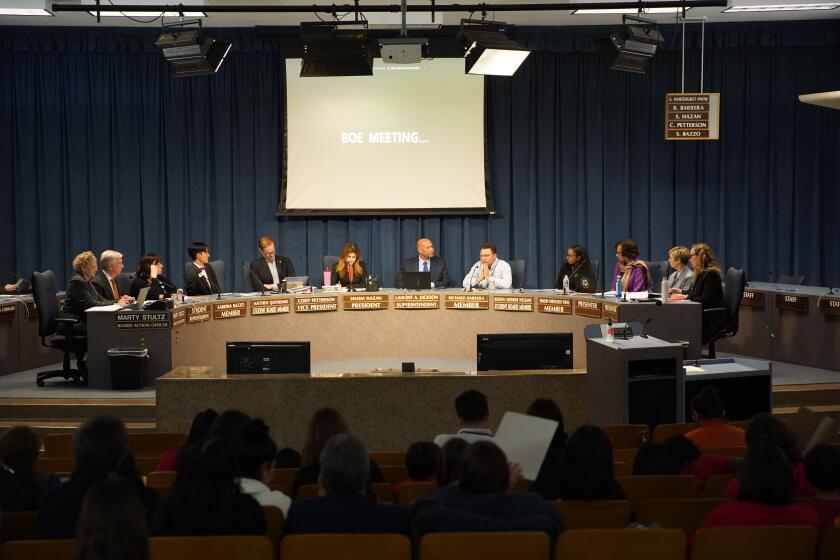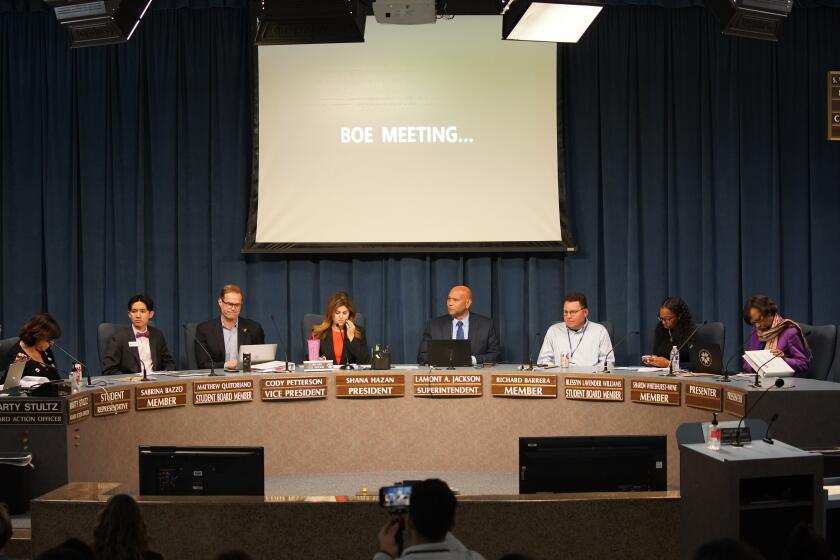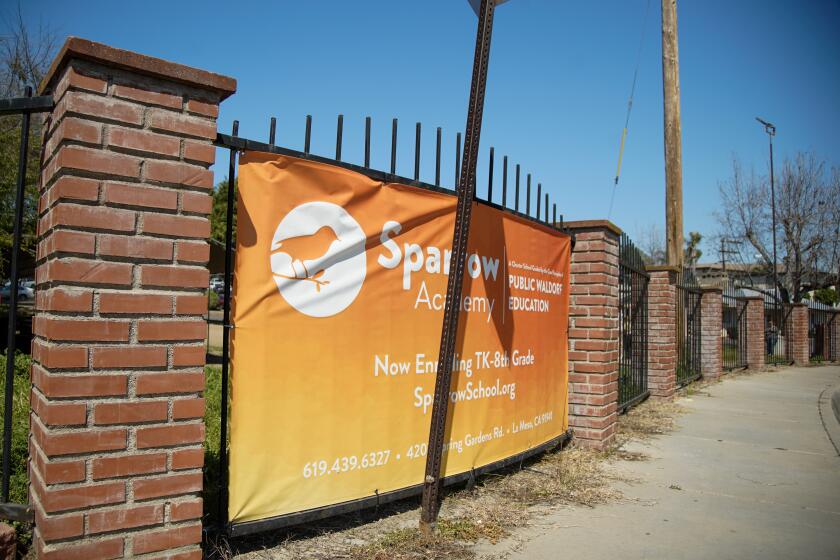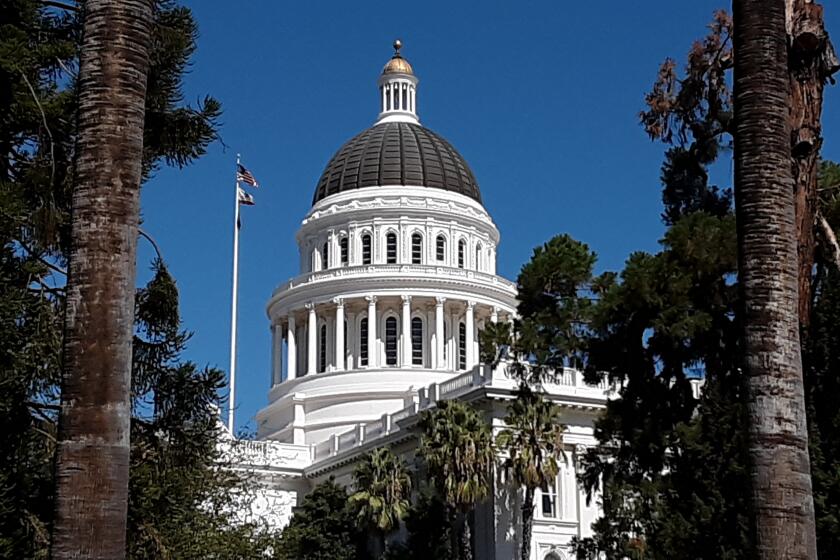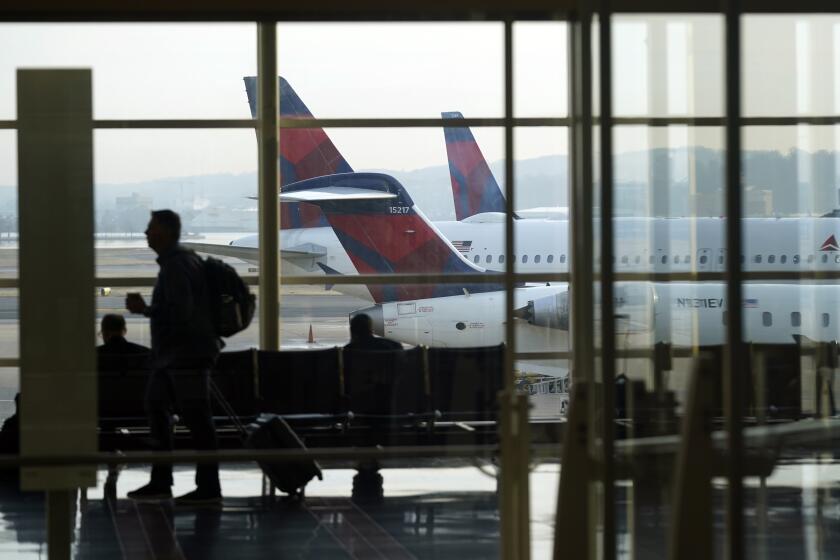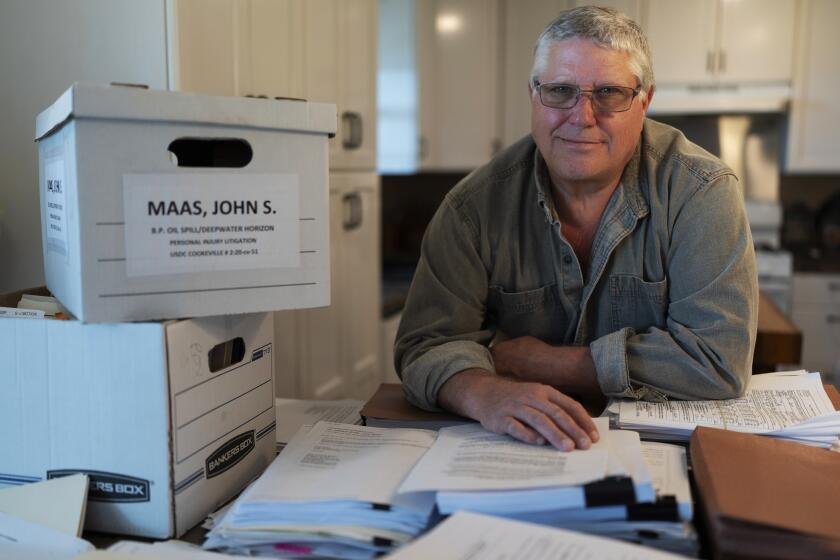Protesters say Encinitas beach and trail closures are unfair, violate their freedom
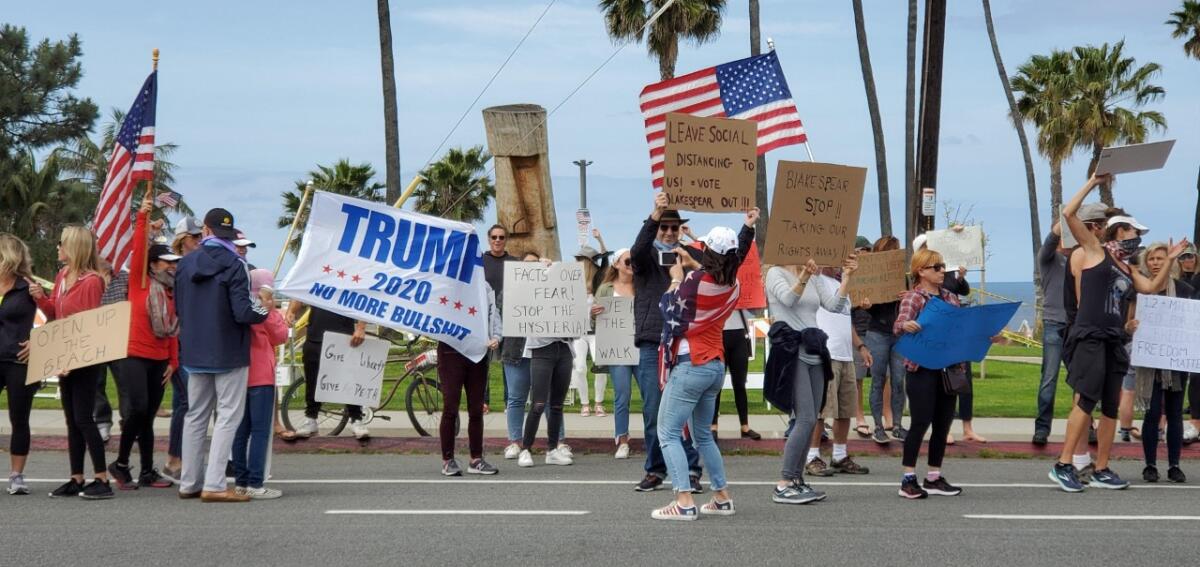
On the day of the protest, county officials announced 55 more COVID-19 cases, bringing total to 2,268
A crowd of roughly 200 people gathered in Encinitas Sunday morning to protest the closure of beaches and walking trails because of concerns over the spread of the novel coronavirus.
Later in the day, San Diego County officials announced that 55 new COVID-19 cases had been diagnosed, bringing the region’s total to 2,268. The number of local residents who have died from COVID-19 remained at 71.
Encinitas protesters carried signs with phrases such as: “This is punishment not protection,” “Surfing is not a crime,” “Government knows best LOL,” “Your fear doesn’t remove my rights,” and “Commies can’t surf.”
Some protesters carried Trump 2020 signs and flags, and many waved American flags. Drivers in dozens of vehicles on South Coast Highway honked for the protesters, including an Encinitas fire truck.
Most demonstrators were not wearing masks or practicing physical distancing. They stood on the side of the road on South Coast Highway near Swami’s pedestrian crossing for more than an hour, then walked through nearby residential neighborhoods.
Encinitas, an affluent community of about 62,700, recorded 30 COVID-19 positive cases as of Saturday afternoon.
The protest followed several similar ones being organized around the country by conservative groups who oppose the closures of businesses, parks and schools put in place over the past month to help slow the spread of the novel coronavirus. On Saturday, at least 200 people staged a “Freedom Rally” in downtown San Diego calling for closures to be lifted.
Crista Curtis, a Cardiff resident who organized Sunday’s protest, said “the last straw” for her was when Encinitas last week closed the Coastal Rail Trail, a popular walking path.
She said she organized the protest mainly to call for the reopening of beaches and trails, but she also thinks more businesses should be allowed to reopen, such as beauty salons.
“I can’t get my eyebrows waxed one-on-one? I can’t get my nails done?” she said. “I don’t see the point of all businesses being closed.”
Curtis was recently in the news for helping to lead opposition to a homeless parking lot in Encinitas.
Several protesters said they view the closures as an infringement on their freedom.
“We want freedom in our country,” said Sian Welch, an Encinitas resident. “Now we’re all seeing how our freedom’s being taken away.”
Several protesters said they think the beach and trail closures are unnecessary because they don’t think there are many local COVID-19 cases or outbreaks.
Some said they think they’re fine not wearing masks or being near other people because they don’t believe people who have COVID-19 are asymptomatic. Studies have shown that people test positive for COVID-19 without showing symptoms.
State and county officials have issued stay-at-home orders in order to slow the spread of COVID-19.
In a recent national poll by Quinnipiac University, 81 percent of registered voters said they would support a national stay-at-home order.
At least four deputies from the San Diego County Sheriff’s Department were spotted circling the protest in SUVs and on motorcycles.
They did not issue citations despite a county health order that prohibits gatherings and mandates that people stay at home unless going to certain essential activities or participating in individual or family outdoor activity.
A member of the sheriff’s department at the protest who did not wish to be named said deputies did not issue citations because the protest was peaceful and “they have the freedom to do what they want.”
Sheriff’s Lt. Glen Twyman, who was not at the protest, said the department doesn’t have a blanket policy for citations issued relating to the COVID-19 pandemic. He said deputies try to keep the public safe without undermining protesters’ constitutional rights.
The deputies’ handling of the Encinitas protest differed from how the sheriff’s department handled an April 11 protest in Otay Mesa, during which people protested the treatment of COVID-19-positive detainees at the federal detention facility there.
At the Otay Mesa protest, protesters stayed in their cars and honked their horns. Deputies cited three people for violating the stay-at-home order, unlawful use of horn and having no proof of insurance.
The Otay Mesa protest lasted 15 minutes. The Encinitas protest lasted more than an hour.
Twyman said protests are handled on a case-by-case basis.
Also on Sunday, the Hillcrest Farmers Market opened for the first time since March 15 after putting in place rules designed to prevent disease transmission.
Physical distancing is required, with chalk marks drawn on the pavement to help give shoppers space around them. Shoppers cannot touch the items they want to buy but instead must point them out to sellers. No pets are allowed.
The market also is limiting how many customers can be in the market at a time.
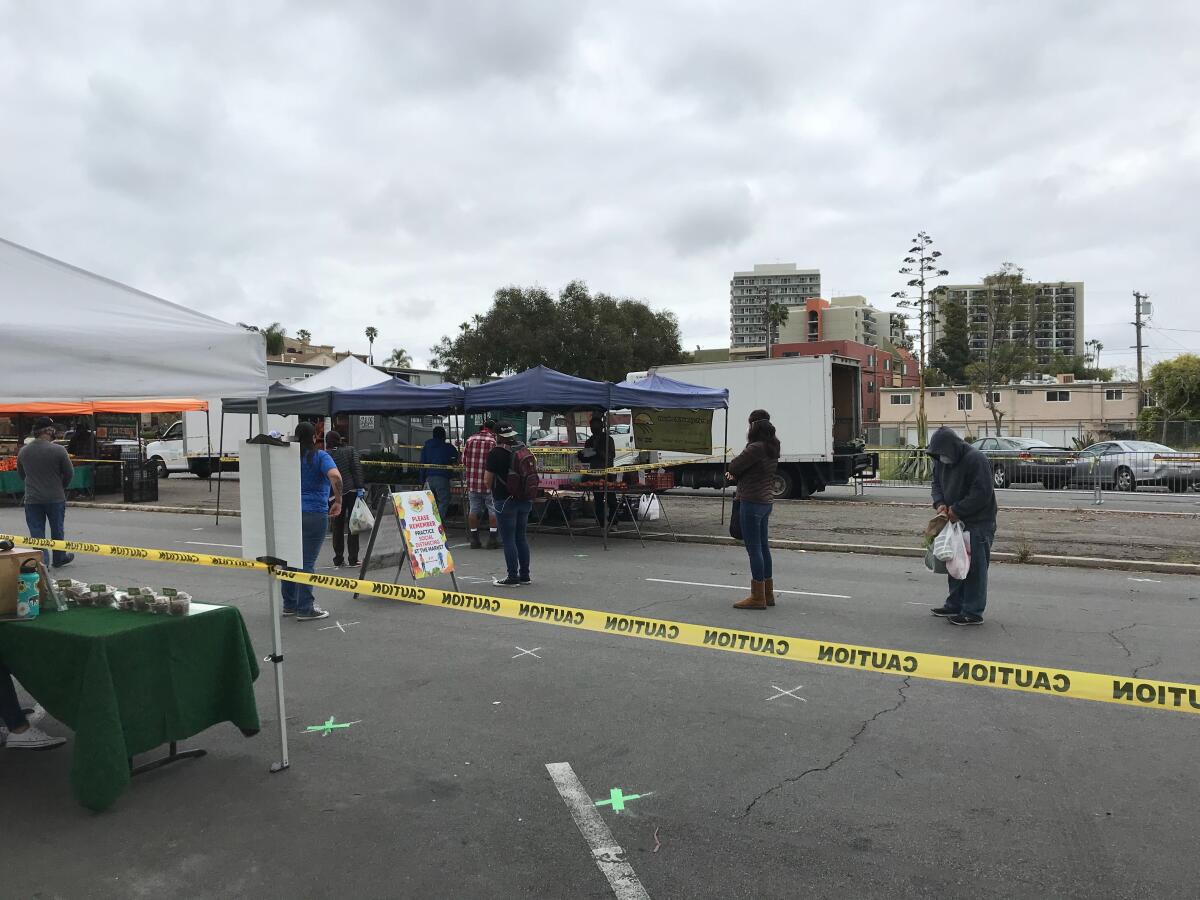
Staff writers David Hernandez and Abby Hamblin contributed to this report.
Top headlines by email, weekday mornings
Get top headlines from the Union-Tribune in your inbox weekday mornings, including top news, local, sports, business, entertainment and opinion.
You may occasionally receive promotional content from the San Diego Union-Tribune.


